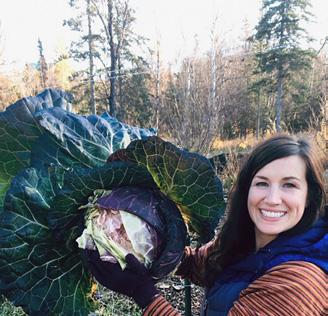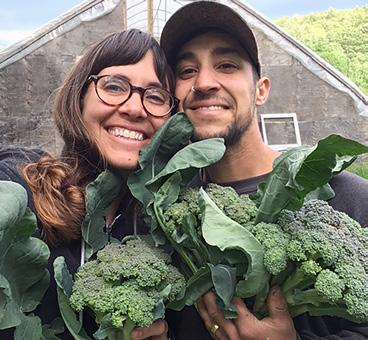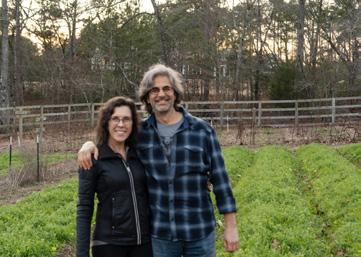
3 minute read
Who’s Growing What Where: USA & Canada
1. Alaskan Farming
Palmer, AK

The founder, Jennifer Sharrock
Credit: Seeds and Soil Farm
Seeds and Soil Farm is spreading the word; all Alaskans can and should grow their own food for their health and well-being. Education is essential, and so the farm teaches, informs, and instructs people on how to grow fresh, nutritious produce at home. The founder of Seeds and Soil-ORGANICS, Jennifer Sharrock, is an Alaska Master Gardener and Permaculture Designer with a master’s degree in Environmental Policy and Natural Resources Management. With her help, the farm grows fruits and vegetables for market with a focus on regenerative agriculture and bio-intensive agriculture. The soil is healthy, and the food is delicious and nutritious. With food security a serious issue around the world, the regenerative market farm also teaches Alaskans how to save viable seeds for future crops, and sells only heirloom and open-pollinated varieties.
Teaching health and wellness. Learn more: seedsandsoilorganics.com
2. Flower Power
Skagit Valley, WA

Founder of Floret Farms, Erin Benzakein
Credit: Floret Farms
You won’t find your everyday flowers at Floret Farm! The family-run operation specializes in growing unique, rare, and heirloom varieties that are sure to impress even the most experienced gardeners. From fragrant sweet peas in the spring to dinner plate dahlias in the fall, the property’s fields burst with beauty throughout the seasons. Floret Farm stands behind its blooms; it conducts extensive research to determine the most desirable cut flower varieties and shares that information with people looking to grow beautiful gardens of their own. The farm’s seeds come from banks around the world and are for sale at the farm’s shop along with tubers, bulbs, and more. Hard to believe that the farm was never meant to be a business endeavor. Founder Erin Benzakein fell in love with nature at her grandparent’s country home as a young child. As an adult, her passion yielded beautiful results, and people took notice. The rest is history.
Making people’s lives beautiful with flowers. Learn more: floretflowers.com
3. Growing No-Till
Guilford, Vermont

Committed to the no-till movement
Credit: Milkweed Farms
Preserving soil structure is the name of the game at Milkweed Farm in picturesque Vermont. Founder Jonah Mossberg is committed to the no-till movement and truly believes that biologically active soils with plenty of organic matter grow healthy plants. Although not certified organic, Mossberg never uses GMO seeds, pesticides, or chemicals of any kind in his fields. His reward is nutrient-dense vegetables and flowers free of pests and diseases. Believe it or not, Mossberg’s passion for growing food wasn’t something he was born with; after spending a summer in his college years as a farm-hand, he fell in love with farming and never looked back. Beyond producing food to feed the surrounding population, Milkweed Farm collaborates with other nearby farms, donates to local organizations, and stands in solidarity with many social justice movements.
A farm with a conscience. Learn more: milkweedfarmvt.com
4. Grow with the Flow
Aberdeen, NC

Owners Mark Epstein and Jules Latham
Credit: Flow Farm
It’s a small scale farm where everything that grows is harvested by hand, but it has a huge impact. In a state badly polluted by industrial agriculture, Flow Farm has made a name for itself through its veganic growing methods and homemade biochar. Located in a pine and oak forest in North Carolina, when owners Mark Epstein and Jules Latham set out to start their farm in 2008, they didn’t realize their soil wasn’t well-suited for growing fruits and vegetables. Vegans, they chose not to use animal by-products to improve the earth and opted instead to make biochar in a kiln they had built on their property. Along with veganic growing techniques, the biochar has had a tremendous impact on the soil. Today, Flow Farm grows a diverse range of crops for sale at local markets and in subscription food boxes. The plants thrive and produce nutritious yields because the soil is so darn happy.
There is an alternative to chemical and animal agriculture. Learn more: flow.farm










